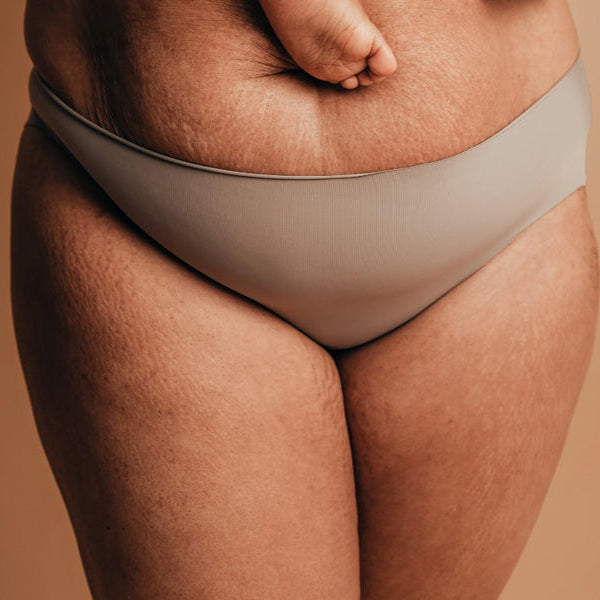Organic, natural, and transparent care
All our products are made in France or Europe with natural ingredients
More than 199,999 families trust us ❤️
Language: US
Products
Content
0 results
Organic, natural, and transparent care
All our products are made in France or Europe with natural ingredients
More than 199,999 families trust us ❤️
Language: US
Products
Content
0 results

Regaining control over your body after giving birth can be challenging, especially if you experienced a difficult delivery. Nine months of transformation, adaptation, and learning to embrace a new version of yourself—one that might surprise you! Pregnancy changes your skin, widens your hips, and, to your astonishment, even alters the appearance of your intimate areas.
Strange? Not really… The vulva and vagina are also affected by pregnancy. Here’s why.
For purely physiological reasons, the vaginal and vulvar tissues stretch during a vaginal delivery to allow your baby to pass through. Your body naturally facilitates this process by making these tissues more elastic.
After birth, it’s completely normal for your vagina and vulva to feel sensitive and swollen for a few hours or even days. Don’t be alarmed—this is part of the recovery process.
Just like the rest of your body, your vagina won’t immediately return to its pre-birth state. It takes time to heal, regain its tone, and recover from the incredible work of carrying and delivering a baby. Your pelvic floor in particular has gone through a lot, and each part of your body will slowly but surely find its balance again.
Here are some tips to support your recovery:
Osteopathy Sessions
Osteopathy can help realign your pelvis and support your body’s healing process, including your vaginal tissues.
"After giving birth, I saw an osteopath once a week for about three to four months. It was time-consuming, but I knew that helping my body regain strength was crucial if I wanted to feel good in my own skin again. Paired with pelvic floor therapy, my recovery was so much faster!"
— Lou
Pelvic Floor Therapy
Your midwife or physiotherapist can guide you through exercises to strengthen your pelvic floor and restore vaginal tone. Keeping this muscle strong helps prevent issues like urinary leakage in the long run.
"I skipped pelvic floor therapy after my first pregnancy and ended up dealing with leaks every time I exercised. I was too scared to run because I felt like I would pee myself. My physiotherapist taught me how to engage my pelvic floor properly, and it changed my life! Now I can run, jump (gently), and play with my kids without constantly worrying about accidents."
— Olivia
Beyond muscle recovery, your intimate area needs gentle care. After birth, your skin is delicate and requires soothing, hydrating products.
Building a postpartum self-care routine can help you embrace this new phase with kindness and patience. Your body deserves all the love and support as it transitions into motherhood. ❤️